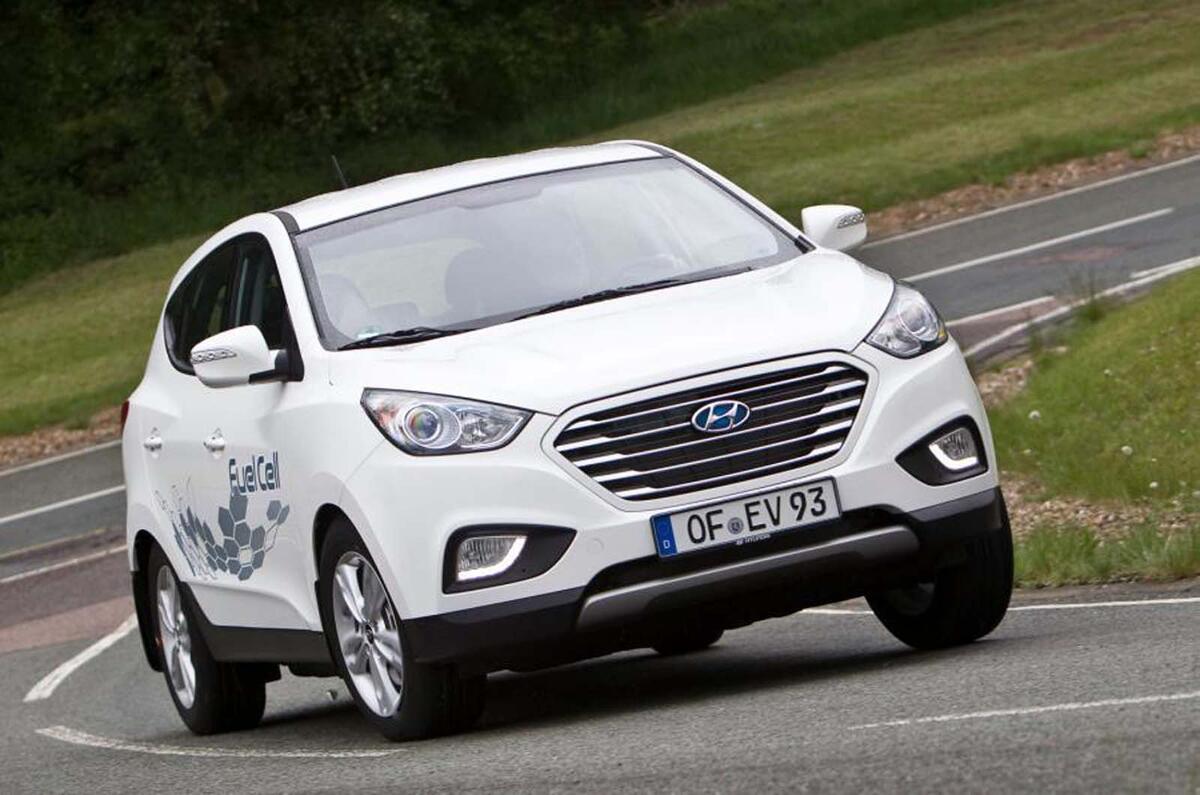Hyundai-Kia and the Volkswagen Group - led by its Audi brand - will co-operate on the development of hydrogen fuel vehicles in a deal that they believe will fast-track the technology’s development and dramatically bring down costs, making hydrogen-powered electric cars a viable alternative to battery-electric cars in the near future.
As part of the deal Audi, which has acted as the VW Group’s centre of excellence into hydrogen research for more than 20 years, has committed to bringing its first hydrogen-powered car to market “at the beginning of the next decade”.
No details have been released beyond the fact it will be an SUV and that it will be sold as a “small series production” vehicle; it is not clear if this means it will be a bespoke model or a version of an existing vehicle modified to run on hydrogen, but insiders say that the latter is more likely because of the costs involved.
Opinion: Hyundai and Audi join forces: who’s the winner?
Peter Mertens, Audi member of the board for technical development said: “For the breakthrough of sustainable technology, co-operation is the smart way to achieve attractive cost structures.”
Hyundai and Kia’s head of FCEV research, Dr Sae-Hoon Kim, said: “The key motivators are to hasten development and reduce costs. The more capability we have the more scale we will get and the more authorities will be willing to invest in and encourage the technology.
“The progress we have made in terms of making hydrogen fuel cell cars that are durable enough to be sold is incredible - just a few years ago I did not think it would happen in my lifetime, but already we are there. Now we must focus on cost and scale, and partnerships like this have the potential to address both of those things.
The deal initially allows for the cross-licensing of patents and access to parts deemed non-competitive, but both sides have confirmed that the deal could extend further in time, possibly including the co-development and manufacturing of vehicles.
Hyundai has taken leadership in bringing hydrogen-powered cars to market, first launching the ix35 Fuel Cell in 2013 and now the Nexo. However, take up has been hindered by the high purchase price of the cars (likely to be in excess of £50,000 for the Nexo, a car that is around the same size as the Hyundai Tucson, which starts from just under £20,000).
Audi has only produced test concept cars powered by hydrogen, including the A2H2 test vehicle in 2005, the Q5 HFC in 2008 and the Audi A7 Sportback h-tron quattro in 2014. The Audi H-tron quattro was then shown in 2016. Despite not launching any of these vehicles into production, Audi says it is now working on its sixth-generation of fuel cell technology.
Other manufacturers are also working on hydrogen technology collaboratively, including Toyota and BMW, Honda and GM and Mercedes and Ford.
Read more
Audi A5 review
Hyundai i30 review




Join the debate
Add your comment
Brilliant!
PR, but no R&D
R&D
I think you'll find that VWG are at the forefront of R&D.
I presume that in your post
R&D
You're like a stuck record with reference to Volkswagen. Like most manufacturers they have produced bucket-loads of tech - hence where we are today with cars and transport in general, but you're usual blinkered-view stops you from seeing this.
Prove it
Just words
To divert attention from the on going diesel gate stories and it suits Hyundai as to make out progress is being made on Hydrogen cars
Hydrogen cars went pop BEV went wizz.
xxxx wrote:
Interesting that you can see into the future, most people are waiting to see what will happen with hydrogen.
IMHO
It's called opinion. What's more Interesting is that you follow me!